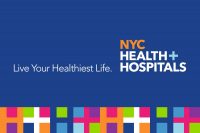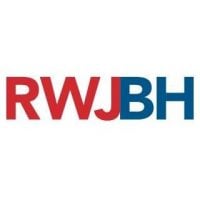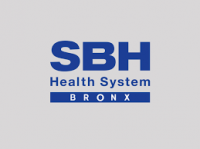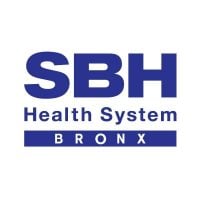Albert Einstein College of Medicine - Substance Abuse
Drug Rehab Center in Bronx, New York
- Substance Abuse
- Opioid Addiction
- Dual Diagnosis
- Alcoholism
The Albert Einstein College of Medicine's Substance Abuse Addiction Treatment Facility in Bronx, NY provides a comprehensive approach to addiction treatment including detox, outpatient, dual-diagnosis and intensive outpatient services while also being accredited by SAMHSA and accepting private health insurance.
About
Albert Einstein College of Medicine - Substance Abuse, located in Bronx, New York, is a reputable treatment facility that specializes in addressing alcoholism, substance abuse, opioid addiction, and dual diagnosis. This facility offers a range of services to cater to the diverse needs of individuals struggling with these issues. Accredited by SAMHSA, the facility is known for its commitment to providing high-quality care and evidence-based treatments. With a focus on comprehensive care, Albert Einstein College of Medicine - Substance Abuse aims to support individuals in their journey towards recovery.
The treatment center provides various levels of care, including detoxification, outpatient programs, dual-diagnosis services, and intensive outpatient programs. These services are designed to address the specific needs of individuals at different stages of addiction and recovery. The facility utilizes a multidisciplinary approach, combining medical, psychiatric, and behavioral interventions to ensure a holistic approach to treatment. Through individual and group therapy sessions, medication management, and educational programs, Albert Einstein College of Medicine - Substance Abuse equips patients with the necessary tools and support to overcome addiction and achieve long-term recovery.
Genders
Ages
Modality
Additional
Accreditations
SAMHSA
Conditions and Issues Treated
Recovering from substance abuse is an essential part of a healthy life for many people. It’s a long and challenging process, but it can be worth it in the end if you manage to get through all parts. Detoxifying your body, rehabilitation after that time passes or when needed (depending on what type), and then recovery while also receiving therapy support throughout this entire process.
A standard route to starting recovering from substance abuse and addiction is through a detoxification center. There you can completely heal your body and mind and continue on the path of recovery without feeling any of the lingering effects of substances.
Within the past decade, opioid addiction has become a nationwide epidemic. The United States hosts one of the world’s highest rates of opioid use or abuse and has one of the highest rates of opioid-related deaths. In the United States, opioid drugs are classified as Schedule II-IV controlled substances due to their highly addictive properties and potential for abuse. These include morphine, opium, heroin, oxycodone, hydrocodone, methadone, and fentanyl. Physicians usually prescribe opioids to help control pain.
Over time, opioid users develop a tolerance for the drugs, which makes it difficult, if not impossible, to function without them. In turn, opioid users often resort to illicit means of obtaining the drugs. These means can include drug dealers, friends, and family members who do not have legitimate prescriptions for the drugs. Opioid addiction can quickly lead to heroin use, especially those seeking more intense highs than prescription opioids offer. Due to the high risk of overdose, heroin users are at a much higher risk for illness and death.
A person who struggles with addiction and a mental health condition suffers from a dual diagnosis. This means that they have two issues that must be treated. The specific mental health issues that the patient at Albert Einstein College of Medicine - Substance Abuse might have include but are not limited to:
- Depression
- Bipolar Disorder
- Anxiety
- PTSD (Post Traumatic Stress Disorder)
The specific addiction issues that the patient might have include but are not limited to:
- Alcoholism
- Drug Addiction (i.e., Cocaine, Meth, and other stimulants, Marijuana, and Ecstasy)
The combination of the two illnesses can be tough to treat. Taking care of one or the other is tough, and taking care of both cannot be done alone. A patient who receives dual diagnosis treatment will be given the best chance at becoming sober.
Levels of Care Offered
This center offers a variety of custom treatment tailored to individual recovery. Currently available are Detox, Dual-Diagnosis, Intensive Outpatient, Outpatient, with additional therapies available as listed below.
Detoxification is a critical first step in treatment for drug addiction. Drug detoxification helps the individual withdraw from the drug by providing a controlled environment where symptoms can be managed through medication and close observation. Detoxification is an inflection point where the individual can get on a recovery track, but it’s also one of the most dangerous points in the recovery process.
In addition to going through physical withdrawal from certain drugs, a detox program also provides the individual with drug testing to monitor their progress. This way, if the individual is not ready for sobriety (such as if they relapse), the treatment professionals can catch it early on and use that opportunity to help re-orient the individual towards recovery.
Intensive Outpatient Programs are similar to partial hospitalization, but they don’t require the patient to go home each night.
This means that while they have to attend meetings and receive other types of help at the facility, addicts are allowed to keep their jobs or continue with school without having to miss their classes or work opportunities. This is a great option for those who can’t take time away from their jobs or schedules to attend a treatment program.
During this type of program, the addict will be required to meet with counselors and other types of professionals throughout the day. This will help them stay on track and prevent them from relapsing after they leave the facility.
An outpatient treatment program is set up to help with alcohol or drug addiction or a co-occurring disorder. The treatment must attend the treatment facility for their therapy and other programs but return home each night. The frequency of mandatory attendance decreases after much of the treatment program is complete. The treatment programs are monitored by the treatment facility and case managers who work for a judge or judge’s office. A treatment program may be performed out of a treatment facility, treatment clinic, or treatment center.
The benefits of outpatient treatment programs are many. One of the most beneficial treatment programs is that it allows treatment for clients who cannot afford or may not be able to attend treatment at a treatment facility, treatment center, or treatment clinic full-time. Another benefit of treatment programs is that they reduce crime rates because treatment allows people to treat their addiction.
Therapies & Programs
Group therapy sessions provide recovering addicts with a chance to cope with everyday situations that many face. Group therapy sessions are held in rehab facilities, clinics, churches or community centers that offer drug addiction treatment.
People who attend these groups are encouraged to voice their feelings and support other addicts in recovery. This helps group members strengthen their own recovery program while cheering on others who are struggling with sobriety.
Payment Options Accepted
For specific insurance or payment methods please contact us.
Is your insurance accepted?
Ask an expert, call (888) 674-0062
Additional Details
Specifics, location, and helpful extra information.
Bronx, New York 10461 Phone Number(718) 829-3440 Meta DetailsUpdated November 25, 2023
Staff Verified
Patient Reviews
There are no reviews yet. Be the first one to write one.
Bronx, New York Addiction Information
More than 2 million New Yorkers are currently suffering from some type of substance abuse and many of those are minors. Alcohol abuse, in particular, is prevalent among those underage. As a result of the high prices and regulation of prescription drugs, many New Yorkers turn to heroin instead. This has led to a serious heroin epidemic in the state.
In the Bronx, drug overdoses are a major problem – in 2016, there were nearly 76 lives lost to drug-related deaths. Common drugs commonly abused in the state include cocaine, methamphetamine, and prescription painkillers like oxycodone and Vicodin. There are some 12-step programs, holistic treatment options, and other types of therapy available depending on your specific needs and preferences.
Treatment in Nearby Cities
- Carthage, NY (234.7 mi.)
- Williston Park, NY (12.0 mi.)
- Katonah, NY (29.7 mi.)
- Utica, NY (171.6 mi.)
- Amityville, NY (25.1 mi.)
Centers near Albert Einstein College of Medicine - Substance Abuse
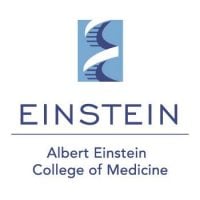
Albert Einstein College of Medicine - Montefiore Medical Center Wellness Center at Waters Place OCDY
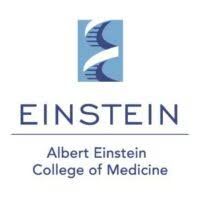

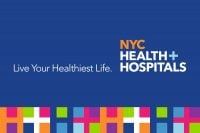
The facility name, logo and brand are the property and registered trademarks of Albert Einstein College of Medicine - Substance Abuse, and are being used for identification and informational purposes only. Use of these names, logos and brands shall not imply endorsement. RehabNow.org is not affiliated with or sponsored by Albert Einstein College of Medicine - Substance Abuse.


